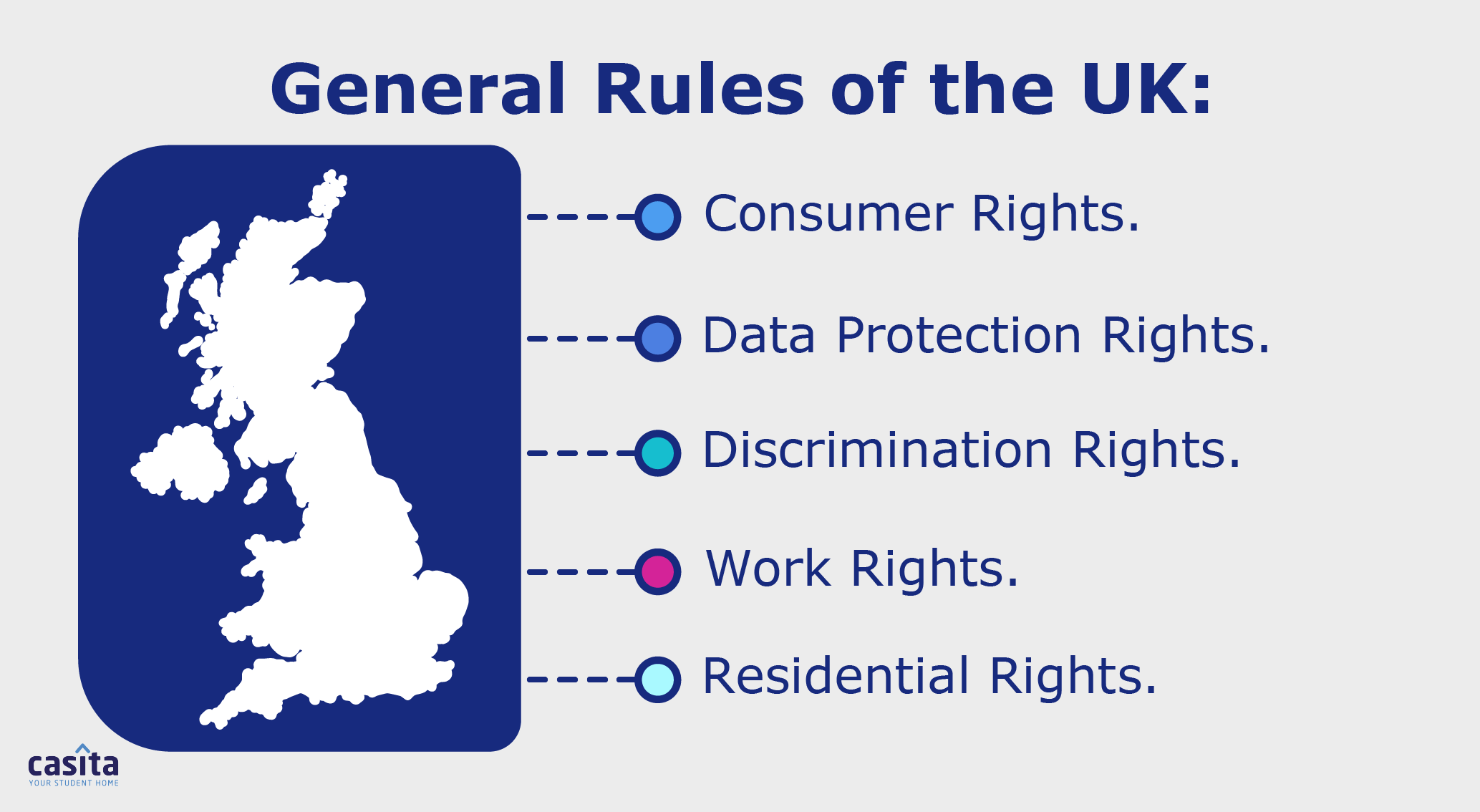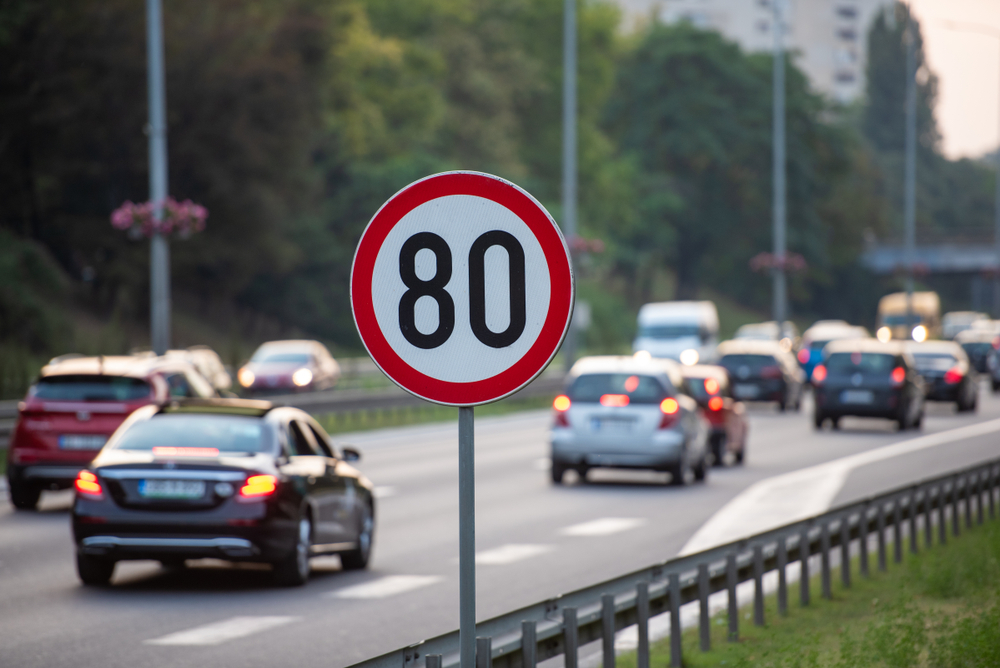What Are the Rules of UK: UK Common Rules and Regulations?
Travel Preparation
Exploring
7 mins read
Share

Updated at: 25 November, 2025
Published at: 12 August, 2019
By Samir Badawy
What Are the Rules of UK: UK Common Rules and Regulations?
Travel Preparation
Exploring
7 mins read

Updated at: 25 November, 2025
Published at: 12 August, 2019
By Samir Badawy
Share
The United Kingdom is one of the best countries for higher education, having some of the top-ranked student cities in the world and highest-ranking institutions. The United Kingdom’s top student cities include London, first worldwide, Edinburgh, 16th worldwide; Manchester, 30th worldwide; Glasgow, 36th worldwide, Newcastle, ranking 39th; Bristol and Coventry, both ranking 44th, and Birmingham, ranking 49th worldwide.
The aforementioned UK cities are very popular among international students thanks to their high-ranking institutions and student-friendly nature. When arriving in the country, you must be aware of the rules of the UK so that you can easily transition into the country and adhere to its laws.

The United Kingdom’s Legal System
UK laws are part of what’s called the Common law, characterised by not having a written constitution and being built on precedence. This Common law is mainly used in former Commonwealth countries.
England, Wales, Scotland, and Northern Ireland all have separate legal systems, all using the Common law system, except for Scotland, which uses a mix of Common and Civil laws. Common law is a law dating back to the Middle Ages in England and is still used today as the UK’s legal system.
Rules in the UK That You Must Know
There are various rules that you must be aware of before you arrive in the UK, and these are the UK’s rules concerning travelling in and out of the country, general rules in the UK, academic integrity, and if you plan to drive or cycle you must know the UK’s traffic rules which also apply to pedestrians. In the following subsections, we’ll break down these rules in detail.

Travel Rules of the United Kingdom
Before travelling to the UK, you should first check your institution’s requirements. Once that’s done, you should also check travel requirements, which include the necessary documents and what to do and what not to do when travelling in and out of the country.
One of the most important things to check is which visa type you should apply for. This info is typically provided by the institution. In most cases, as a student, you will require a student visa for full-time studies or can even apply for a “Study English in the UK (Short-term study visa)”, which can allow you to stay from 6 to 11 months in the UK.
It is important to note that to qualify for a student visa, you must have been given a place at an institution, as well as have the financial means required to travel, which, according to the UK government, is £1,334 monthly for those studying in London, and £1,023 monthly for those studying outside of London. Additionally, you should also provide proof of reading, writing, and understanding of the English language.
Other procedures involve having travel permits from your home country, paying a health surcharge, which gives you healthcare coverage and differs depending on your length of stay, providing parental approval if you’re travelling at the age of 16-17, and providing additional documents (if required based on your home country) which include Tuberculosis tests and ATAS (Academic Technology Approval Scheme) for those doing their masters.
You must also display good conduct and not have committed any criminal offence in your home country. Other details, such as proof of identity, personal interviews, and other documents, will be required and may differ based on the home country.
General Rules of the UK
During your stay in the UK, you will have various rules protecting your rights. Your rights are generally classified as the following:
Consumer Rights
Data Protection Rights
Discrimination Rights
Work Rights
Residential Rights
Presented below are some of the general rules of the UK:
Consumer Rights
In the UK, if you feel that you are treated unfairly regarding goods and services, you are entitled to have consumer rights protection. This includes reporting problems with credit and store cards, faulty goods, counterfeit goods, and receiving poor service, among other things that infringe on your rights as a consumer.
If any of your rights were violated as a consumer and you would like to seek advice, you can always refer to consumer advice helplines, which offer advice regarding your rights as a consumer.
Data Protection Laws
Everyone has the right to privacy, especially regarding personal data. This is why, in the UK, your personal data is regulated by the Data Protection Act of 2018, which safeguards your information, especially personal data such as gender, race, religion, personal beliefs, ethnicity, genetics, biometrics, health, and more.
This is why, as a right, you are entitled to know how your data is being used and have access to your personal data, have personal data removed, stop or limit your data from being processed, and object to how your information is used.
Protection against Discrimination
The rules in the UK against discrimination are heavily enforced to promote equality. In the UK, you should never discriminate against anyone because of their religion, sex, race and ethnicity, marital status, pregnancy, or orientation; the same protection applies to you as well.
Discrimination rules are enforced specifically at work, in education, as a consumer, when buying or renting property, when using public services, and in private clubs and associations.
Work Rights
In the UK, you have various laws protecting you at the workplace, most notably against harassment in the workplace. Harassment is any action committed against you in person or via call, email, or letter that entails spreading harmful rumours, unfair treatment, picking on someone, as well as denying training and promotions based on age, sex, marital status, religion, ethnicity, disability, gender, pregnancy, and orientation.
If any harassment occurs, first speak to your manager, HR, or trade union representative, and if not successful, you can head to the employment tribunal to form a formal complaint.
Residential Rights
In the UK, any residential property dispute is resolved with the First-Tier Tribunal. Cases of property dispute include rent changes, as rent can only be changed with your approval and with a fair and realistic increase; doing so can be in the form of making a change in rent in a new contract renewal at the end of your tenancy period, you should be given at least a month’s notice (only if you pay weekly or monthly) before a rent increase, this is only applicable with private landlords.
You could also seek help for lease-related issues, such as service or administration charges, the cost of a building’s insurance, the breach of the contract, extending your contract, and more.
At Casita, our landlords are carefully screened for private options before putting their properties on display. We highly recommend PBSAs for the most convenience, as these are purposely built and managed for students, with all of their needs being taken into consideration.
For more information regarding student accommodation in the UK, check out this link regarding our UK student housing options or contact one of our accommodation experts.
Academic Integrity Rules in the UK
There are strict academic integrity rules in the UK that govern the expected academic conduct. Students in the UK cannot plagiarise, which is taking information as it is without paraphrasing or taking it as is without proper referencing. It is always essential to always present your sources in the referencing style required by your institution.
You are also not allowed to collaborate with other students during individual assignments, let other students copy your work, cheat during exams by using notes, use old work and present it as new (recycling old work), fabricate facts, and have false citations. You also cannot rely on third parties such as writing services.
Some penalties resulting from academic misconduct include lowering your grade, failing the course, or being expelled from the university.
Traffic Rules in the UK
If you plan on walking or cycling in the UK, then you should be aware of some of the UK’s traffic rules, which will also apply to you if you choose not to drive/cycle and simply be a pedestrian.

Driving Rules in the UK
In the UK, it is essential that you first know the basics, such as that you shouldn't drive without a seatbelt, that you shouldn’t drive under the influence, you should also drive on the left side, keep the middle lane empty, you should also not break a red light, and you must be at least 17 years of age to drive.
Other more detailed rules entail knowing the different road types with varying speed limits. These are as follows:
M Roads: These are motorway roads and the largest roads in the UK; they also have the fastest road speed, 70 miles per hour. Pedestrians cannot cross these roads and have anywhere from three to four lanes.
A Roads: These roads are the UK’s main roads and typically have a speed limit of 60 miles per hour. These roads have traffic lights and roundabouts.
B Roads: These roads are smaller roads that are used to link A roads.
C and D Roads: These roads are the smallest, are considered minor roads, are short in length, and can have only one lane.
You can get additional information regarding UK driving licenses on the driving license in the UK link.
Pedestrian Rules in the UK
As a pedestrian in the UK, you are not allowed to jaywalk, shouldn’t litter the streets, and should respect the street crossing signs. If you have no pavement, you should always walk on the road’s right side while facing the oncoming traffic. It is also advisable to wear fluorescent materials to be seen during poor weather conditions to be noticed while crossing the road or while assisting others to cross the road.
You will also be given three different crossings in the UK, and these are “Zebra”, “Pelican”, “Toucan”, and “Puffin Crossings”.
Zebra crossings: These are stripped pedestrian walking zones where you can notify the oncoming drivers that you wish to cross. You have the priority on this crossing, and as soon as drivers come to a stop, you can safely cross to the other side. Some Zebra crossings have a middle island; if so, once crossing, wait at the middle island and repeat the process to continue crossing.
Pelican crossings: Pelican crossings are pedestrian-operated traffic crossings where, with a touch of a button, the traffic lights change and will also display a green walking man symbol to cross.
Puffin crossings: These are very similar to the pelican crossings; just press the button and wait for the green figure to appear. This system is also smart, with sensors detecting pedestrians.
Toucan crossings: These are also push-operated; however, they allow the passage of both pedestrians and cyclists. They have light displays similar to traffic lights. The name Toucan crossings comes from “Two can cross”, a reference to pedestrians and cyclists.
Cycling Rules in the UK
The main cycling rules to be followed in the UK include cycling on the left side, putting on a helmet while cycling, wearing high-visibility vests, having a working light on the bicycle, stopping at traffic lights, as well as giving way to pedestrians when required.

At Casita, we urge our students to learn more about the UK before travelling; this includes understanding the general rules of the UK and other useful information, including Things Students Need to Know Before Studying in the UK, 4 Problems International Students Face in the UK, UK University Interview Tips and Tricks, Cheapest Gas and Electric Suppliers in the UK: A Full Guide, and The Difference between the UK, Great Britain, and England, among other useful links.
Travel Preparation
Exploring
By Samir Badawy
Share
Travel Preparation
Exploring
Updated at:
Published at:
By Samir Badawy
Share





